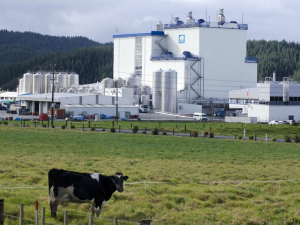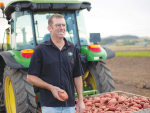The act requires a person who trades in food to ensure it is safe and suitable; it also requires registration and audit.
The Ministry for Primary Industries (MPI) is responsible for this enormous undertaking, overseeing about 45,000 producers. The controls imposed by the act are tailored to the risk profile of the food being produced. The higher the risk – from a food safety point of view – the more stringent the requirements.
All producers of food -- including fruit and vegetable growers, whose risk profile is not especially high -- have until November 30, 2018 to register. Guidance on how to register is available at www.hortnz.co.nz
NZ has two quality assurance schemes that provide traceability and accountability from crop to customer for the production of fruit, vegetables, olives and flowers: NZ GAP and GLOBALG.A.P. GAP stands for 'good agricultural practice'. Both have run for many years; NZGAP was started by VegFed in 1999. These schemes ensure best practice in production, packaging and distribution of fresh produce. They reduce the risk of health and safety and environmental problems, so consumers can buy with confidence.
NZGAP was developed by NZ growers to address consumer concerns about food safety, traceability and production issues. Also, growers wanted an efficient, cost effective management and production system that removed the need for multiple auditors. By meeting the standards required by the schemes, GAP approved suppliers can show their customers that their products are produced in a suitable manner.
The horticulture industry now proposes that the GAP schemes be recognised under the Food Act. This requires that MPI be satisfied that the GAP schemes conform to the Food Act, that there is a registration system, and that an effective and ongoing audit is in place. Required changes can be made to accommodate the Food Act and MPI's requirements. However, the GAP schemes are already directing the food assurance scheme that ensures fruit and vegetables for sale are safe and suitable.
It is a 'win-win' for MPI and the industry: MPI gets a tailor-made scheme that meets its requirements and is up-and-running; and the hort industry needs only to comply with one quality assurance programme – saving time and expense.
One question HortNZ gets asked is whether the Food Act applies to farmers' markets, gates sales and to people who sell produce from 'white vans' in suburban streets. The Food Act exempts growers selling direct to the public from having to register and undergo an audit. But their produce must still be safe and suitable, i.e. it must not make consumers sick and it must meet composition, labelling and identification requirements and be in the right condition for its intended use.
However, it does require registration for anyone reselling produce. So if the 'white van' driver or farmers' market stall holder is not the grower, he/she will need to register under the Food Act and be audited.
• Mark Chapman is the chief executive of HortNZ.











